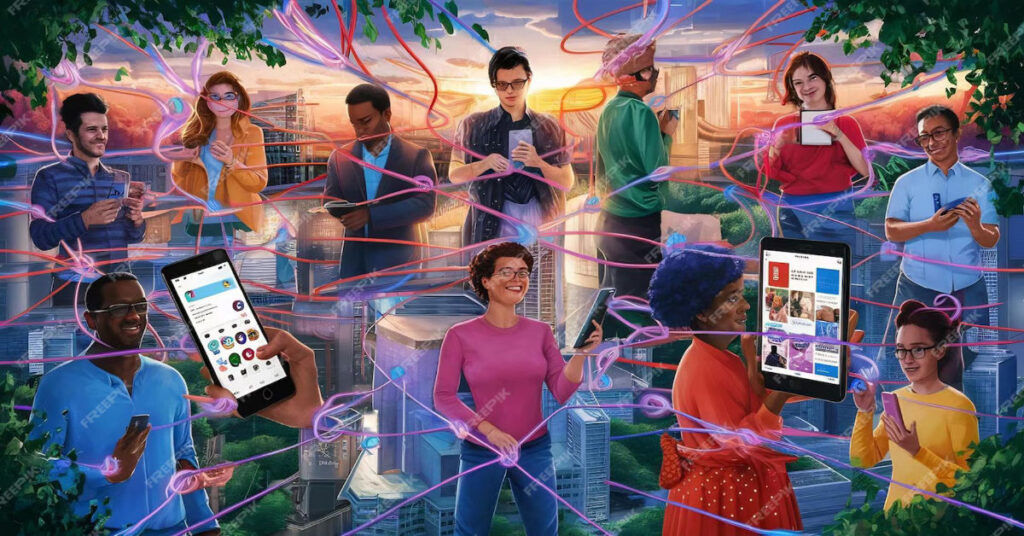Have you ever noticed how some online spaces feel like a stage for performative fandom? That’s the world of simpcitu. This term captures online environments where admiration turns into entertainment, and validation becomes currency. In this article, we’ll unpack simpcitu, where it came from, how it shows up in different corners of the internet, and how you can engage without losing yourself.
What Is simpcitu?
simpcitu is internet slang describing communities or platforms that normalize, even glorify, performative support. More than just individuals simping, simpcitu is the backdrop: an ecosystem reinforcing ‘simp’ culture. It’s marked by:
- exaggerated devotion—financial or emotional
- culture that rewards attention‑seeking behavior
- environments where public approval replaces genuine connection
Origins: From Meme to Microculture
simpcitu evolved through several stages:
- The Rise of “simp” – A slang turning mainstream around 2020 to describe someone excessively devoted, particularly in romantic or parasocial relationships.
- Meme Evolution – Internet communities took “simp” and transformed it into performative jokes, often referencing vague online crushes or personalities.
- Cultural Shift – As the creator economy boomed, platforms like Twitch, TikTok, and OnlyFans amplified performative appreciation. Labeling entire spaces as simpcitu tapped into that irony and critique.
How simpcitu Manifests Today
Below is a table summarizing where simpcitu shows up and in what form:
| Platform | simpcitu Behaviors | Driving Factors |
| Twitch | Massive tips, public chat praise, sub-gifting | Financial access, live interaction |
| TikTok/Reels | Fan edits, thirst comments, self-deprecating memes | Viral potential, algorithmic reward |
| X (Twitter) | Public replies, aggressive celebrity defense | Clout chasing, visible affirmations |
| Discord | “Simp” chat channels, extreme moderation loyalty | Closed group dynamics, hierarchy |
| Forums | Over-sharing fandom content, frequent posts meant to attract attention | Engagement metrics, peer recognition |
Why People Talk About simpcitu
- Some users share experiences:
“A site where you go if you’re curious about someone’s OF and don’t want to pay… it’s a goldmine”
These illustrate spaces where community norms support parasocial access.
- Technical disruptions become cultural references:
“simpcity is down indefinitely… Peace simpcity, hopefully someone makes a full replacement soon”
That downtime became a metaphorical moment—the city of performative fandom had emptied.
Risks and Downsides
- Emotional burnout – Constant approval-seeking can erode self-worth.
- Parasocial pitfalls – One-sided attachment harms real-life connections.
- Financial loss – Excessive spending on content or creator support.
- Reduced agency – Public validation may shape identity and behavior.
Healthy Alternatives
- Foster two‑way connections – Engage in communities that value reciprocal support.
- Set personal boundaries – Track financial and time commitments.
- Volunteer offline – Real-world connection counters parasocial immersion.
- Self-reflection – Name validation-seeking moments and reconsider motives.
Key Characteristics Summary
- Ecosystem-driven: Not just one stuck‑up fan, but a whole environment urging performative actions.
- Meme-conscience: Often ironic or humorous in tone, but can hide real vulnerability.
- Driven by Reward Systems: Likes, comments, bits, and sub points become self-worth proxies.
- High visibility: Behavior is public and rewarded by the audience and algorithms.
Conclusion & Call to Action
simpcitu captures a fascinating transformation in online culture how spaces can breed habit-forming, performative behaviors under the guise of fandom. Recognizing these dynamics helps us reclaim authenticity, protect self‑respect, and foster meaningful digital relationships.
If you found this guide insightful, feel free to subscribe for more culture‑aware deep dives, share it with friends navigating online fandom, or join the conversation below. Your voice helps build healthier digital communities.
FAQ
What’s the difference between simping and simpcitu?
Simping is an individual’s show of devotion. simpcitu is the cultural setting encouraging or rewarding such devotion.
Is simpcitu always negative?
No. While often excessive or performative, elements can include genuine support. The concern arises when admiration causes personal harm or loss of self.
Can simpcitu be used positively?
Yes—when acknowledgment is mutual, respectful, and not driven by self-diminishing motives.
How do I spot simpcitu behavior?
Look for repetitive posts of praise, spending to stay visible, or prioritizing public attention over genuine connection.

